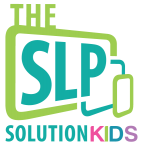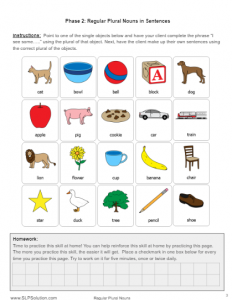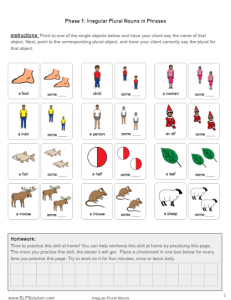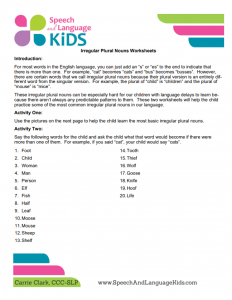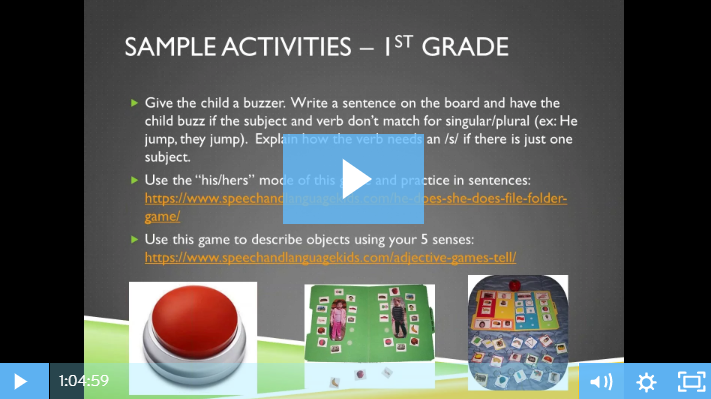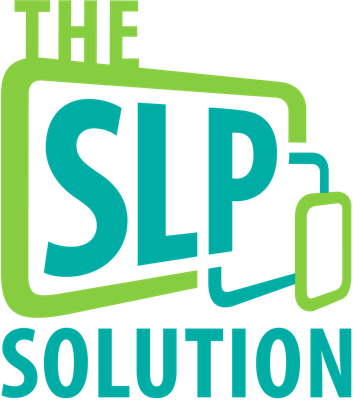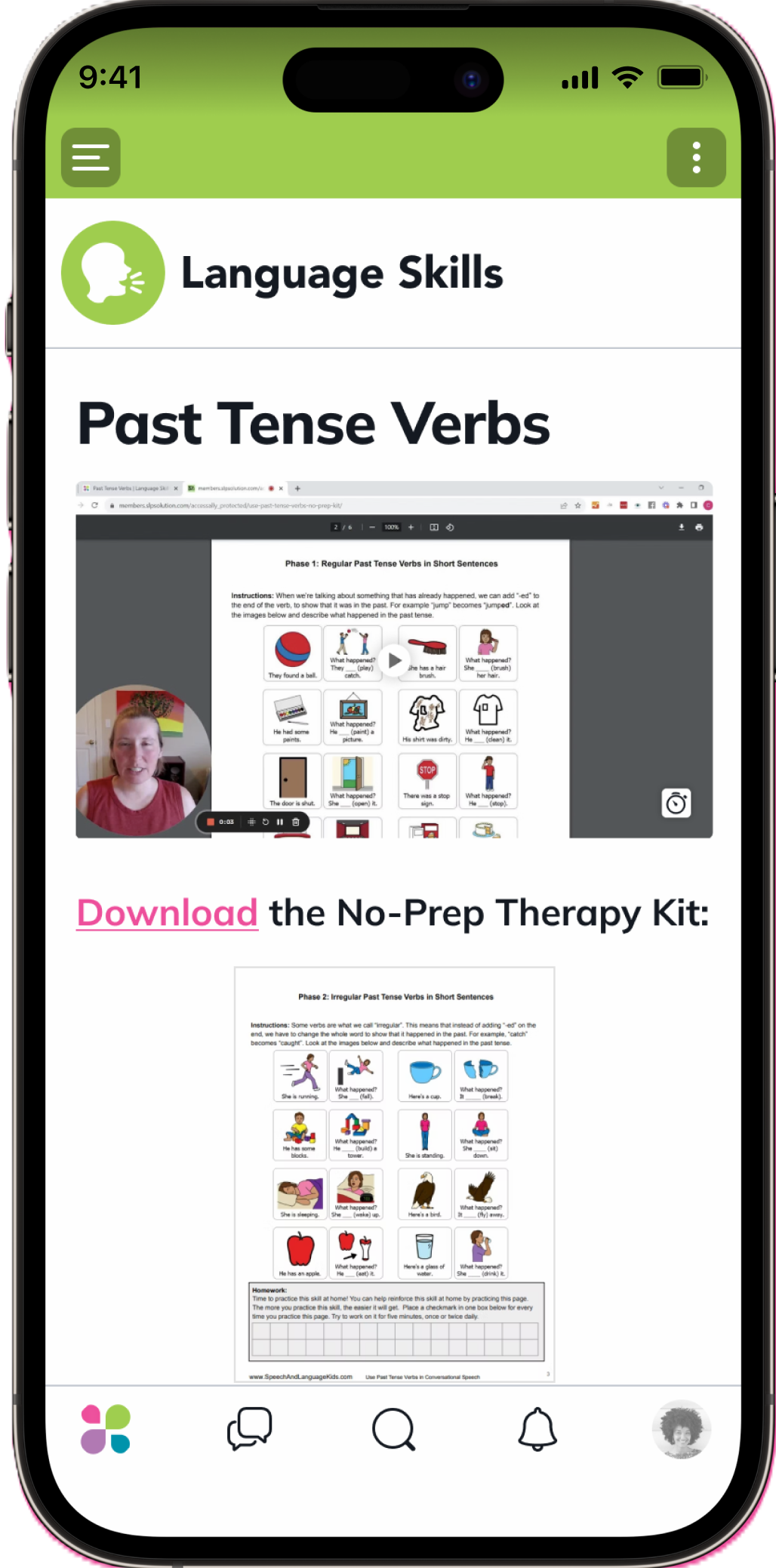Goal: Use Plural Nouns in Conversational Speech
Most of the time when we have more than one of something, we just an an -s to the end of the word. But sometimes, we get to change the whole thing. Thanks English Language! To help our clients understand this tricky situation, here’s a quick guide to get you going!
Sample Goal:
During a 10-minute observation in the natural setting, Client will correctly produce plural nouns (regular and irregular) with fewer than 3 errors/omissions.
Download the No-Prep Therapy Kit:
We have a start-to-finish therapy kit that will give you everything you need to practice this skill in therapy and send home homework. Click the packet below to open it. Then, print it out and place it in the child’s notebook or binder.
Therapy Phases:
We suggest that you work on regular plural nouns first and not introduce irregular plural nouns until they have a strong understanding of regular. We must first learn the rule before we learn to break it!
Regular Plural Nouns:
- Regular Plural Nouns in Phrases: Client will correctly produce regular plural nouns in short phrases (such as, “some cups”) with at least 80% accuracy.
- Regular Plural Nouns in Sentences: Client will correctly produce regular plural nouns in sentences (such as, “I have some cups”) with at least 80% accuracy.
- Regular Plural Nouns in Short Response: Client will correctly produce regular plural nouns in short responses to prompts (such as, “what would you do if you had one hundred balls”) in at least 80% of required contexts.
- Regular Plural Nouns in Structured Conversation: During 10 minutes of conversation in a structured setting (such as the therapy room), Client will correctly produce regular plural nouns with fewer than 3 omissions/errors.
- Generalize Regular Plural Nouns: During a 10-minute observation in the natural setting, Client will correctly produce regular plural nouns with fewer than 3 errors/omissions.
Irregular Plural Nouns:
- Irregular Plural Nouns in Phrases: Client will correctly produce irregular plural nouns in short phrases (such as, “some children”) with at least 80% accuracy.
- Irregular Plural Nouns in Sentences: Client will correctly produce irregular plural nouns in sentences (such as, “I see some children”) with at least 80% accuracy.
- Irregular Plural Nouns in Short Response: Client will correctly produce irregular plural nouns in short responses to prompts (such as, “what would you do if you had one hundred geese”) in at least 80% of required contexts.
- Irregular Plural Nouns in Structured Conversation: During 10 minutes of conversation in a structured setting (such as the therapy room), Client will correctly produce irregular plural nouns with fewer than 3 omissions/errors.
- Generalize Irregular Plural Nouns: During a 10-minute observation in the natural setting, Client will correctly produce irregular plural nouns with fewer than 3 errors/omissions.
What’s Next?
- Once the child has mastered both regular and irregular plural nouns in conversational speech, you can look at what other grammar/syntax skills the client is missing.
Supplemental Materials
Here are some other resources that may help you when working on this skill:
Irregular Plural Nouns Worksheets
Two activities to help children practice using several common irregular plural nouns.
